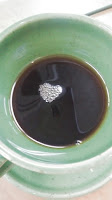Dear students,
Just a quick entry (一筆啓上) to let you know (あなた方にお知らせするため) that there will be no lessons at E-Style for the next two weeks. Classes will resume (再び始まる) on Monday, January 5, 2026.
As the year comes to a close (終わりに近づくにつれ), Jack先生 and I would like to thank all of you for studying English conversation with us in 2025. We look forward to continuing to teach you throughout "The Year of the Horse," 2026.
Take care and have a happy and healthy New Year.
Sincerely,
Alan







